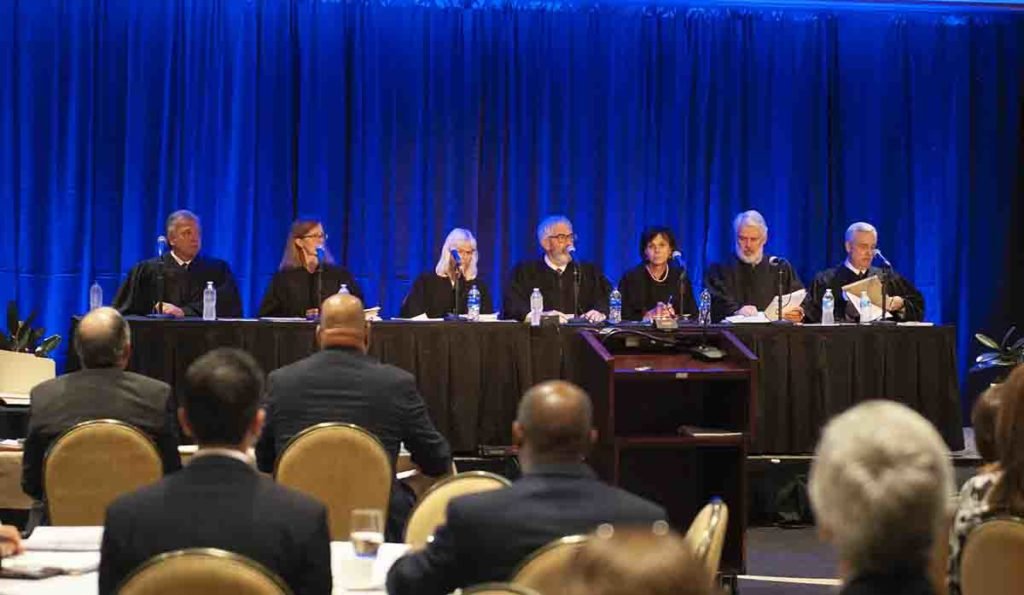
In a shocking reversal of a 2018 Judicial civil verdict, the Montana Supreme court has ruled that Jehovah’s Witnesses were under no obligation to report the sexual molestation of three minors.
Justice Beth Baker penned the 18-page decision, which overturns a 35 million dollar jury verdict against defendants Watchtower of New York and the Thompson Falls congregation of Jehovah’s Witnesses.
In 2018, District Judge James Manley determined that Watchtower, the governing corporation of Jehovah’s Witnesses, and Thompson Falls congregation elders violated Montana’s annotated code, which requires that mandatory reporters notify police following allegations of child sexual abuse. The case went to trial, and a jury awarded Alexis Nunez $35 million dollars as a penalty for the Church’s negligence and malice.
While both sides stipulated that Witness elders are members of the clergy and are mandated reporters, the Supreme Court of Montana has applied the clergy-confidentiality exception [41-3-201(6)(c)] to this case. This reporting loophole effectively states that if a church declares its internal child abuse investigations as confidential, they are exempt from the reporting requirement.
Justice Baker’s opening statement says:
“Watchtower Bible and Tract Society of New York, Inc., Christian Congregation of Jehovah’s Witnesses, and Thompson Falls Congregation of Jehovah’s Witnesses (collectively, “Jehovah’s Witnesses”) appeal the Twentieth Judicial District Court’s ruling that they violated Montana’s mandatory child abuse reporting statute, § 41-3-201, MCA, and its order granting summary judgment to Plaintiff Alexis Nunez on her negligence per se claim. They also appeal the court’s award of punitive damages following a jury trial. We hold that Jehovah’s Witnesses are excepted from the mandatory reporting statute under § 41-3-201(6)(c), MCA, because the undisputed material facts in the record show that Jehovah’s Witnesses canon law, church doctrine, or established church practice required that the reports of abuse in this case be kept confidential. We therefore reverse the District Court’s grant of summary judgment to Alexis and remand for entry of summary judgment in favor of Jehovah’s Witnesses. Because this issue is dispositive, we do not reach the punitive damages award or the Jehovah’s Witnesses’ other arguments.”
This proclamation from the highest court in Montana reveals the sinister and calamitous power wielded by religious institutions, which are permitted to self-immunize their ranking elders from obeying abuse reporting laws, while every other organization is required to comply.
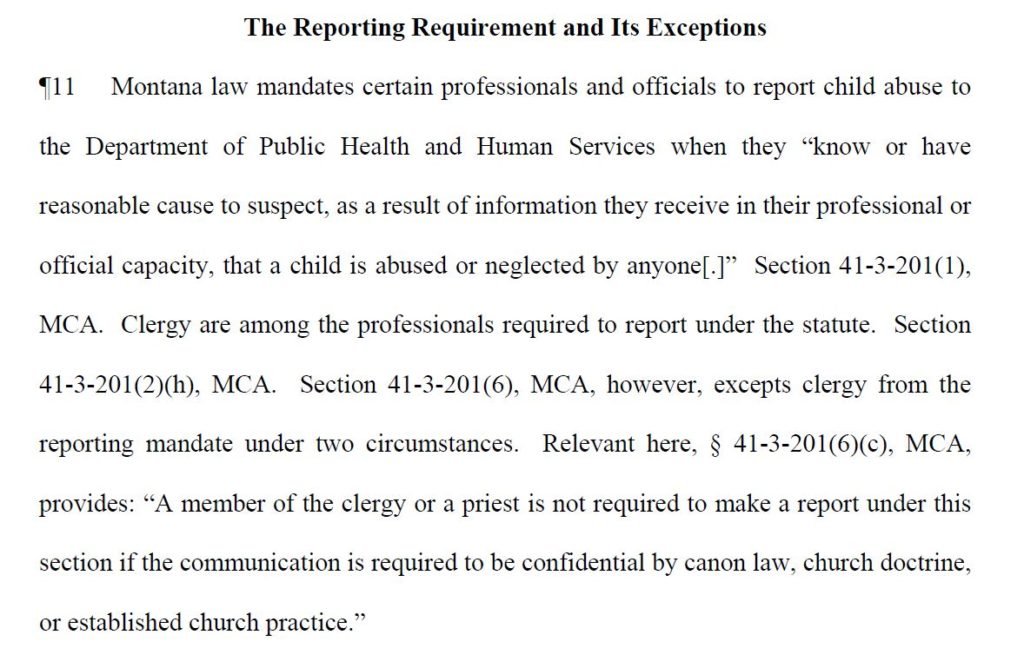
In reaching its decision, the Montana Supreme Court evaluated the claims of both sides, then compared deposition and trial transcripts with Montana’s child abuse reporting laws.
It was not contested by either side that congregation elders fall within the category of clergy under Montana law. It was also not disputed that Watchtower’s legal department in Patterson New York gave explicit instructions to the Thompson Falls elders not to report the sexual abuse allegations to law enforcement.
Enter Douglas “Dave” Chappel
Prior to, and during the September 2018 civil trial, Watchtower produced representative Douglas Chappel, an elder designated to represent both Watchtower and the Christian Congregation of Jehovah’s Witnesses.
Chappel’s testimony was nebulous and deceptive, a fact that seems irrelevant to Montana’s Supreme Court. According to the ruling, “Dave [sic] Chappel’s testimony clarifies that disclosing reports of abuse to secular authorities, while ultimately within each elder’s discretion, constitutes a breach of church canon or practice. As he stated in his declaration: “While not every breach of confidentiality by an elder will result in his removal, each elder is accountable before God, the ultimate judge, for his adherence to the Bible’s command to maintain confidentiality.”
At this point, JW Survey would be remiss if it did not clarify that Watchtower’s representative is, in fact, Douglas Chappel, not “Dave Chappel” as stated by Supreme Court Justice Beth Baker.
With a significant verdict of 35 million dollars on the line, and given the fact that each Supreme Court justice concurred with this ruling, it is appalling that not one Justice noted the obvious blunder, replicated throughout the 18-page decision. Careful attention to detail lacking, one can only ponder whether Justice Baker spent more time watching Dave Chappelle on Saturday Night Live recently than she did in scrutinizing this case.
The Montana Supreme Court relied heavily upon Chappel’s testimony, stating that both sides supported his claims that it’s the practice of congregation elders and Watchtower’s supervisory New York corporations to keep their investigations confidential.
At trial, plaintiff Nunez’ attorney Neil Smith caught representative Chappel contradicting his own pre-trial deposition testimony taken during the summer of 2018. Chappel had previously stated that when the Watchtower legal department advised elders not to report an incident, those elders must maintain strict confidentiality in relation to the case.
However, during the trial, Chappel implied that the confidentiality seal would be broken if Watchtower Headquarters advised elders not to report. This would take the form of “deferring” to or informing the victim’s parents of the crime.
SMITH: “You’re saying that’s not true. Elders are not taught if legal tells you “you don’t have to report,” you’ve got to keep the information confidential?”
CHAPPEL: “We have to defer to the parents at that point. In the lack or absence of law, the parents need to be told.”
Attorney Smith engaged in a protracted exchange with Chappel at trial, pointing out that by Chappel’s own admission, elders might break the confidence of a victim and inform a parent that a minor has made an allegation of child abuse.
On the surface, this might seem logical, but in the Nunez case, elders took the allegations of sexual assault, not to the police, but to the perpetrator himself, Max Reyes. Attorney Smith argued that this was a clear violation of confidentiality.
However, the Montana Supreme Court has ruled that whether a church has broken its own confidentiality policy is irrelevant. Justice Baker, in her concluding remarks, says:
“Finally, both the state and federal constitutions prohibit this Court ‘from
considering whether certain religious conduct conformed to the standards of a particular religious group.’”
What Baker is saying is that it is completely irrelevant whether the Jehovah’s Witness elders violated any expectations of confidentiality. The Montana Supreme Court is only interested in whether the church actually has a policy- not whether they follow it.
To support this position, Justice Baker cites Rasmussen v. Bennett, a 1987 Montana case involving a Jehovah’s Witness couple disfellowshipped because the church ruled that their marriage was not “scriptural.”
In reviewing this case, the Montana Supreme Court acknowledged that Jehovah’s Witnesses have complex internal processes involving internal investigations into marriage and child abuse, but is obligated to repel any intrusions into church policy, no matter how malicious or damaging the policies. The decision continues:
“Here, as in Davis and Rasmussen, we decline to conduct further inquiry into the validity of Jehovah’s Witnesses’ tenets and doctrines, including its canon and practice for adherence to a requirement of confidentiality in handling child abuse reports. Jehovah’s Witnesses representatives testified that its process for addressing these reports is strictly confidential, notwithstanding the involvement of numerous church clergy and congregants. “It is not within this Court’s power to question [the religious institution’s] determination.” Rasmussen, 228 Mont. at 112, 741 P.2d at 759.”
In other words, if the Jehovah’s Witnesses say they have a policy of confidentiality, the court must take them at their word.
The Undeniable Admission
Justice Baker authors a particularly chilling statement which serves to discharge the Witnesses from the Montana verdict, while simultaneously revealing Watchtower’s penchant for collecting and covering up sexual abuse documentation:
“The summary judgment record demonstrates that Jehovah’s Witnesses have an established process for receiving and investigating reports of child abuse within their congregations; that they consider this process confidential; and that the process necessarily involves multiple elders and congregation members, including the accused, CCJW elders who provide spiritual guidance, and local elders who conduct the investigation.”
Montana’s Supreme Court confirms that Jehovah’s Witnesses direct broadscale investigations of child sexual abuse and report their findings, not to law enforcement agents, but to their own headquarters compound in New York State. This evidence is filed away in a secret database of child molesters, while victims like Lexi Nunez are denied the benefit of mandatory reporting laws.
Confidentiality
Justice Baker goes on to address what seems to be the focal point of this case: the definition of “confidentiality.”
Nonetheless, Alexis argues that allowing each religion to define “confidential” as it sees fit will eviscerate the mandatory reporting statute. But her restrictive definition of confidentiality contravenes the plain language of the reporting statute and the intent of the Legislature and would raise potential constitutional concerns. [bold ours]
It would appear that the underlying principle cited here is the Constitutional exercise of religion, free of the entanglements from civil authorities. The Montana Supreme Court stepped carefully around this issue, focusing more attention on the consequences of upholding the 2018 Nunez verdict than on the core issue of failure to report abuse.
The Court examined the historical evolution of the reporting statute, stating: “This Court’s task is to interpret what is contained in the reporting statute as written by the Legislature. We do not opine whether that body could have made a different policy choice that would afford greater protection to child victims. The Legislature is the appropriate body to entertain such policy arguments.” [bold ours]
The Montana legislature did indeed opine on the mandatory child abuse reporting issue back in 1991 when it Adopted House Bill 391, which added members of clergy to the list of individuals required to report. This new Bill as originally written included language stating that the law was “not intended to interfere with the practice of religion.”
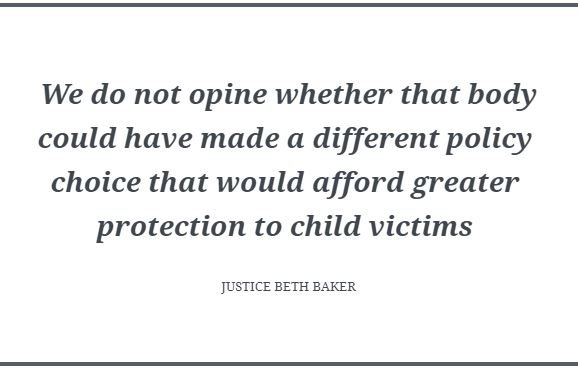
Not surprisingly, the law raised immediate concerns with members of several religious groups, who voiced their objections on January 30, 1991, during the 52nd Legislative session. Pastor Doug Kelley of the Helena community church strongly opposed the bill, saying:
“I would submit to you that this is absurd. You cannot include us and at the same time say it will not interfere with our practice. Part of the practice of religion is confidentiality. To mandate that you are going to include clergy in all mandatory reporting you are going cause a tremendous conflict between the church and the state.”
Ultimately HB 391 was revised to appease the outcry from various church officials. Justice Baker comments:
“After hearing concern from numerous clergy members that the bill would entangle the State in the affairs of the church, the bill was amended to add the specific exceptions now contained in subsections (6)(b) and (6)(c).”
Subsection 6c states: “A member of the clergy or a priest is not required to make a report under this section if the communication is required to be confidential by canon law, church doctrine, or established church practice. “
These added subsections effectively obliterated the mandated clergy reporting statute, adding language so broad that any church could argue that its own definition of confidentiality falls under “established church practice.”
Justice Baker stipulates in her ruling that Jehovah’s Witnesses claim that by narrowly defining confidentiality, they are being discriminated against. The Witnesses are quick to point out that while the Catholic Church has one priest, the Jehovah’s Witnesses have multiple priests- or elders- who are all entitled to the “confidential” details in question. Considering that some congregations have up to 15 or even 20 elders, and the New York Service Department elders are likewise informed, the concept of confidentiality stretches the bounds of reality.
The Supreme Court’s opinion further clarifies why it will not uphold Judge Manley’s ruling against Jehovah’s Witnesses by citing the Establishment Clause of the First Amendment.
“The Establishment Clause ensures that ‘one religious denomination [will] not be officially preferred over another.'”
Given the fact that Jehovah’s Witnesses are known for litigating their Constitutional claims vigorously in the U.S. Supreme Court, it makes one contemplate whether Montana’s highest court simply opted to placate religious freedom laws over the rights of individual victims. It was the legal path of least resistance.
In concluding her Opinion, Justice Baker summarized the unexpected result:
“We hold accordingly that the undisputed material facts in the summary judgment record demonstrate as a matter of law that Jehovah’s Witnesses were not mandatory reporters under § 41-3-201, MCA, in this case because their church doctrine, canon, or practice required that clergy keep reports of child abuse confidential, thus entitling the Defendants to the exception of § 41-3-201(6)(c), MCA. The reporting statute as written accommodates Jehovah’s Witnesses’ definition and practice of confidentiality.” [bold ours]
The obvious question raised here is whether the need to “accommodate” the Jehovah’s Witnesses’ practice of conducting intensive internal child abuse investigations outweighs the duty to report acts of unspeakable sexual abuse to children.
The reaction to this ruling has already generated widespread shock and anger among victims of child abuse and supporters of mandatory reporting law.
In an exclusive statement to JW Survey, plaintiff’s attorney Neil Smith said:
“This is a sad day for victims of child abuse in Montana. Instead of treating individuals and businesses equally in the eyes of the law, this opinion gives preferential treatment to churches, especially the Jehovah’s Witnesses, because it allows the Jehovah’s Witnesses to write their own laws about when they will and will not report child abuse.”
Let’s Not Forget
As the Montana Supreme Court justices navigate the interpretation of the law and the Constitution, let’s not forget what really happened here.
On March 19th, 2004, Lexi Nunez’s aunt Holly wrote a letter to the body of elders of Thompson Falls Montana in which she described horrific and detailed accounts of multiple sexual assaults by her stepfather Max Reyes. This took place over many years, beginning in 1994. After confessing to the abuse of her brother Peter, Max Reyes was disfellowshipped by congregation elders.
The elders wrote that they believed the sexual abuse allegations of Holly and Peter. The elders were aware that Holly’s niece Lexi was in the care of Max Reyes both before Reyes was disfellowshipped, while he was disfellowshipped, and after he was reinstated. Watchtower’s legal department instructed the elders not to report, knowing very well the potential implications of covering up these crimes.
As a result, the cycle of abuse continued, and Lexi was sexually molested by Max Reyes, who fled to Mexico before the 2018 trial.
Let’s never forget that Montana’s law did not prevent elders from contacting the police. It was Watchtower’s legal department which blocked the report.
The law gives religion the opportunity to claim privilege, but it does not require it. Watchtower commands the use of privilege to escape reporting.
The Enigmatic 1998 Report
In reviewing the Montana Supreme Court decision rendered January 8th, it did not go unnoticed that in the opening paragraphs of the opinion, Justice Baker erroneously stipulated to a fact which Watchtower categorically denied from the outset of this case.
Baker writes: “In 1998, Holly told Don Herberger, a local elder at the Thompson Falls Congregation, that her step-father Maximo had inappropriately touched and fondled her.”
The opinion goes on to state the details of the 1998 report, which Watchtower attorney Joel Taylor categorically denied.

In opening arguments, Taylor told the jury that Holly’s claim that she approached elders in 1998 was a complete fabrication, and that the sole purpose of the claim was to extract monetary damages from Watchtower. In somewhat dramatic fashion, Taylor wrote “1998” on a whiteboard, then drew a line to dollar signs, stating:
“So this 1998 meeting is for one singular purpose. One singular purpose. That’s what it’s for. It didn’t happen. It didn’t happen.”
During deliberations, the jury agreed that there was not sufficient evidence to prove that the 1998 report occurred, which prevented them from awarding Holly McGowan a portion of the judgment.
While testimony and circumstantial evidence clearly suggest that McGowan was telling the truth, the Montana Supreme Court appears to break established legal procedure by taking disputed testimony and presenting it as fact.
The Net Outcome
While there is no question that the Montana Supreme Court ruling has failed the victims and shocked the public, there are a number of important impacts of this case that cannot be ignored.
Following the 2018 judgment against Watchtower, the Montana Legislature adopted a number of changes, described by the Montana Law Review Online:
“During the 2019 legislative session, Governor Bullock signed HB 640, which updated laws relating to childhood sexual abuse, namely Montana’s child abuse reporting statute. The Legislature made the punishment for failure to report sexual abuse a felony, and applied it retroactively”
While the clergy confidentiality exemption still exists, these changes still represent progress.
In 2019, the Montana Trial Lawyers Association honored plaintiffs Holly McGowan and Lexi Nunez with the Citizen of the Year award for their courage and willingness to seek justice and demand accountability.
National media coverage, coupled with the efforts of Nunez, McGowan, and their legal team, has shed considerable light upon the flawed practices of Jehovah’s Witnesses. It has enabled and inspired a notable number of additional survivors of abuse to come forward and speak out, to reclaim their voices amidst a culture of secrecy and cover-up.
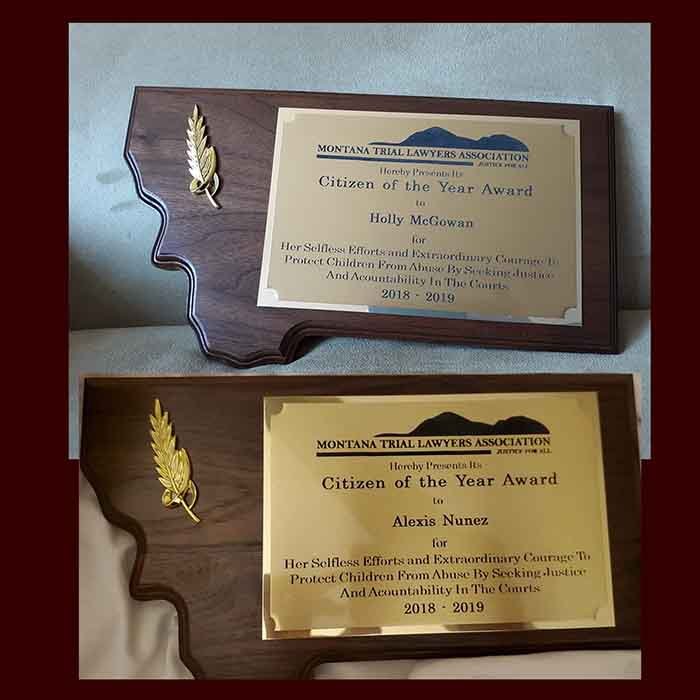
Cases like Nunez v. Watchtower have drawn the attention of legislators and top State Attorneys throughout the United States, leading to a reexamination of current law, and has opened up religions like Jehovah’s Witnesses to criminal investigations.
Those criminal investigations will be the subject of upcoming JW Survey articles.
Lexi Nunez Speaks Out
The Montana case is not a win for Watchtower. In the process of dodging a $35 million dollar bullet, they have exposed their arrogant and caustic policies which have muzzled the cries of victims of abuse. You won’t find the Montana ruling on the Jehovah’s Witness website, because the acknowledgment of this ruling is also a concession of their own guilt.
I’ve spoken with plaintiff Lexi Nunez about the sudden and unexpected Montana Supreme Court decision, which tipped the scales of justice in favor of the religion which covered up her abuse. She’s brave, courageous, and hopeful. And she deserves the final word:
“Please don’t let this case discourage you. Sometimes we have to fail before we succeed but we should not lose heart. To all victims past and present, we see you, we hear you, please, let us help you. Despite what our abusers would have us think, we are not alone! But the only way we fight this is by shining a light on the truth. Be brave and make a difference, not just for yourself but also for other victims who are struggling to find help. Our solidarity comes from the strength in our numbers. Keep fighting!”
-Lexi

Resources, Documents, and Media:
Read the Montana Supreme Court Decision HERE
Montana Mandatory Reporting Code HERE
The JW Survey team discusses the ruling on Episode 30 of Watchtower in Focus:

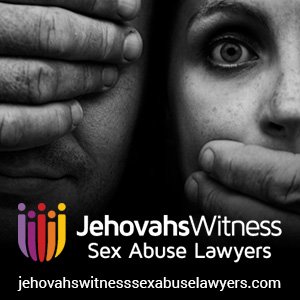
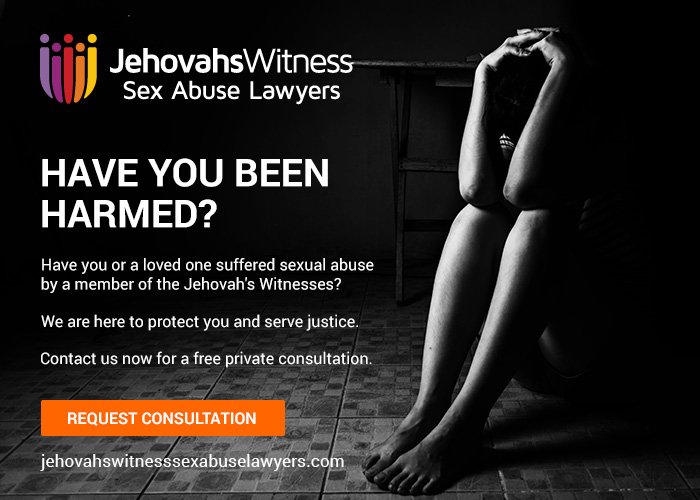
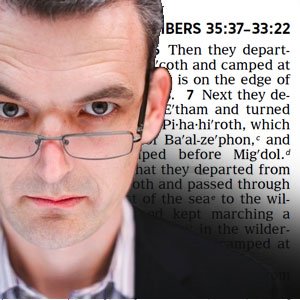
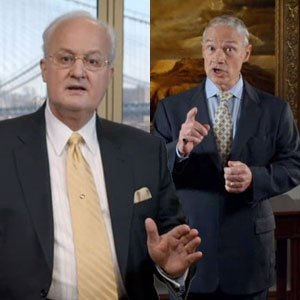
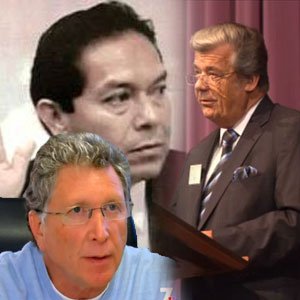
Can’t they appeal this to the US Supreme court?
“The state supreme court is the highest state court in the U.S. state court system. The state supreme courts are known by various names in the states. … Federal courts may overrule a state supreme court decision only when there is a federal question which springs up a federal jurisdiction.”
https://system.uslegal.com › state-supreme-courts
So, basically, it means the issue would need to create a question of Federal jurisdiction or constitutional jurisdiction versus the states’ right to govern.
Does the US Federal government have a law requiring reporting of abuse cases by clergy or governing how states can or can not mandate religious affairs? Does the state law or its enforcement encroach on federal jurisdiction? And, the US Constitution cuts a wide, swath of avoidance in terms of what is not states’ rights and a limiting boundary on what is Federal jurisdiction. The Tenth Amendment states, “The powers not delegated to the United States by the Constitution, nor prohibited by it to the States, are reserved to the States respectively, or to the people.”
It doesn’t mean the law firms can’t appeal but USSC would decide if it will hear the case.
I can see this being appealed and stirring up the mirky waters of religious establishment by state/federal rules & regs/legislative law. Because these mandatory reporting requirements defining clergy rest on a wobbly foundation of who is defined as a cleric by the states which use the IRS Tax Code definitions as a basis So, the government is establishing who is or is not a cleric [for tax purposes only–really??]. And, there are some types that are impatiently waiting to take on/down the IRS tangle of codes or any perceived federal infringements.
So, it seems the IRS tax code inadvertently saved Watchtower’s cash reserves.
It’s a sad scenario, but wouldn’t exist if persons were not locked into the cult culture. Example of an auto accident. Do you call an elder and expect him to report the incident to the police? Murder? Call an elder… House break-in. Call an elder. Seriously?
Plaintiffs, if I was you I would ask a lawyer, a constitutional scholar, if Watchtower could be successfully sued in the state of New York, if filed on the basis of violating the your civil-rights/Constitutional rights to “Life, Liberty, and the Pursuit of Happiness,” instead of just filing on the grounds of child protection law in Montana. The argument would be that Watchtower in New York exercised considerable control over the actions of plaintiffs’ parents and WTs’ religious clergy members, influencing their actions leading to your continued abuse. If that’s in fact what happened. Something I am not aware of, being unfamiliar with the circumstances that happened to these plaintiffs. But if the abuse did continue after it was brought to your elders’ and parents’ attention, you might have a case on that basis. I would check that out before walking away.
Seems to me the State of New York is the place to file all these cases, since it recently passed its revised child protection laws. You might also have a case based on New York child protection laws, because WT was made aware of your abuse in New York state. Is WT New York required to report out of state cases they become aware of inside their organization? That’s something you should definitely find out. Because if they are New York law is the deciding factor not Montana law. Too bad that case was filed in Montana. USA federal law states any organization in the United States operating in multiple states could be sued in any state it operates in. WT’s headquarters are in New York. So it’s possible to file there, though inconvenient. Zalkin law firm might do it if the case has merit, and since you already won an award merit would probably be assumed by most law firms.
Heads-up plaintiffs! Get a lawyer who knows these things through their experience of handling similar cases. You need a top notch lawyer because I expect that’s the kind WT will use. And remember, you are up against a statute of limitation that runs out this year in New York. That means if you don’t file in time you are prohibited from suing. I believe another article posted on this website said the New York statute of limitations runs out in September. But don’t quote me on the month. I’m writing this comment from memory. Also, I am not a lawyer, but advise you to check these things out with one.
Best wishes plaintiffs.
Stupid law in Montana. So crimes can go unreported and pedophiles can go unpunished just cuz a religion says it’s confidential? No crimes should be confidential…ESPECIALLY against children! Maybe immorality can be confidential but not when it comes to a crime. This is so sad and enraging.
Excellent report, Mark. JWs have nothing to be proud about following this court decision. Although the organisation knew the offender was a danger to children, they stayed silent, and he went on to abuse others. Watchtower is Pontius Pilate.
It’s like an old time Western! The lawman “owned” by the powerful town banker, perpetuates lawlessness and squashes protests at the banker’s behest.
ARE the courts owned by Religion? Why do we need courts at all, with this example of their uselessness, and their willingness to ignore moral obligation.
The JW’s are a religion, as a body they have all the rights as any other religion as to the clergy-confidentiality exception [41-3-201(6)(c).
Sadly this is what happens when religious bodies have their own moral rules and freedom to follow those rules. My concerns about all of this has to do with WITNESSES testimony in the first place.
In the early 1900’s children’s testimony was banned in the courts because kids sometimes don’t tell the truth. It is imperative that the truth comes out and thus the two witness rule. This is not unreasonable because a child’s testimony PLUS the perpetrators testimony fullfills that if the adult admits their actions…
I understand the confidential aspects of this but I don’t see why a problem such as child sexual abuse can’t be REFERED to the police without the DETAILS expounded to them. Then confidentiality would not be broken but just a report came in and the police are checking it out….of course going to the police outright would solve this problem but that would rarely happen…
This ruling happens because we live in a Constitutional Republic and religions have quite a bit of freedom and unfortunately the JW’s get the same as others in this respect no matter if they are toilet cleaners, window washers, bus drivers, rug cleaners and Amway representatives….
quote: “WHAT’s THE BEAST ?
Because the prophecies have their UNIQUE spiritual fullfilment INSIDE or WITHIN of that people gathered to serve to Jehovah ,
the BEAST is to be looked for , inside of that people , at the time called “last days”. Daniel 10:14.
The beast is in fact an organizatory system built inside of that people by the seed/offspring of EDOM or ESAU.( WEEDS ).
That system developped mainly after 1942.
To that system the Devil gave its authorithy as written in Rev. 13:2.
That system/city/organisation is very precious to the Devil , because it represents his LAST fortress on earth , in his fight against God and His people of saints !
Devil will fight to defend his fortress ! ”
https://www.jehovahs-witness.com/topic/161688/strange-e-mail-from-romania
Someone should tell Trump about this. He will do anything to distract people from his impeachment and he is a family man. Let him punish the society for their actions. It would be crazy this but he is the man fir the job.
Excellent article Mark, all key issues addressed well, I do think that this ruling should be appealed if only to bring clarity and consistency across all states, the subject demands that there should be more accountability from religious groups, which is clearly fudged with this decision from Montana state, very sad day when such crimes can be covered up by Watchtower and then given approval by the state.
Wow! I was really hoping these brave women would have won this appeal! I’m saddened that Montana didn’t recognize the complete farce of the whole clergy privilege within this Org.
I do realize this fight against this religion is not race but more of a marathon, however it still hurts to know that my fellow fighters didn’t receive their complete victory. They of course made a huge dent hopefully enough for Montana to take these cases more seriously.
I’m so Proud of you ladies for putting it all out there. We all believe you, and really wish the Supreme Court would have done better for you.
Nikki
Disgusting. So much for “RULE OF LAW”. I never believed in secular “authorities”, as a JW, or now that I’m out. Power corrupts? No. Power ATTRACTS the corrupt. I’ll bet half the “judges” on that kangaroo court are pedophiles themselves!!!
Just want to say that the above “pedophile” comment is my PERSONAL opinion. If any secular “authority” (read: HACK) is upset by it, just trace the post and SEE ME AT MY PLACE. I’ll be waiting. I eat degenerates for brunch.
Hello.